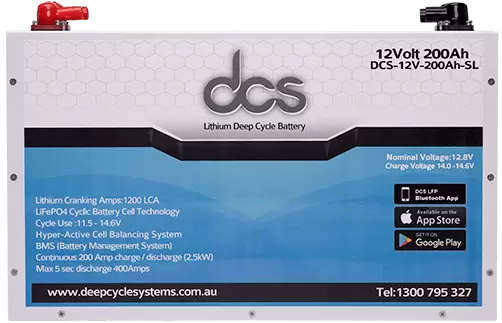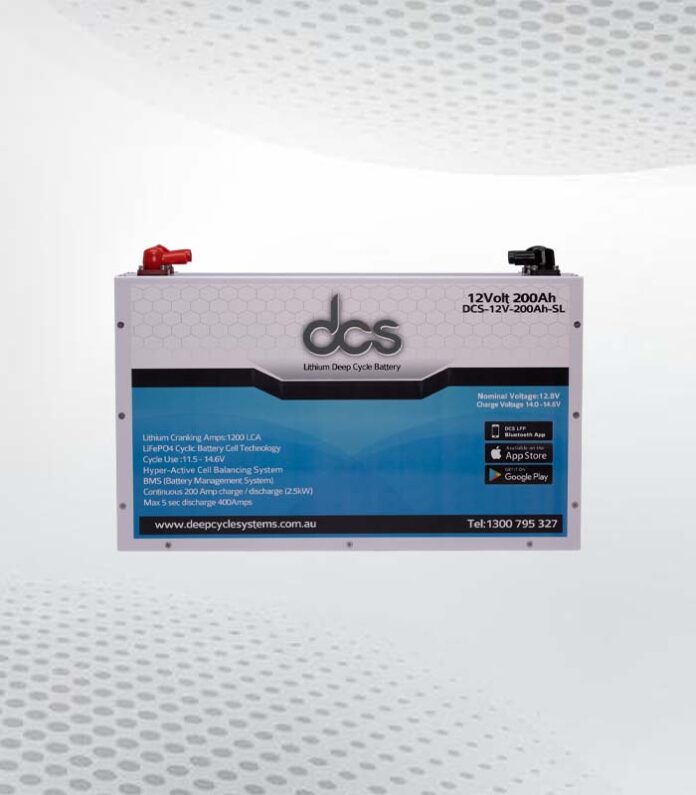The 12v 100ah lithium battery is a potent and versatile power source, providing long-lasting and reliable energy for various applications. It’s no wonder this battery has become so popular in recent years; its combination of high capacity and low weight make it an ideal choice for powering everything from drones to electric cars. In this blog post, we’ll discuss the best ways to maximize Efficiency when using this battery, including the best charging methods, discharging guidelines, and proper storage techniques.
Benefits of Using a 12v 100 Ampere-Hour Lithium Battery
The 12v 100 ampere-hour lithium battery offers numerous benefits for various applications. It provides a higher energy density than traditional lead-acid batteries, allowing for more power in a compact size. Lithium batteries also have a longer lifespan and can handle hundreds of charge-discharge cycles. They are lightweight, making them ideal for portable and mobile power solutions. Firstly, it provides a higher energy density than other battery types, allowing for a compact and lightweight design.
Lithium batteries have a longer lifespan, can be recharged more times, and offer faster charging rates. They also have a lower self-discharge rate, meaning they can hold their charge for more extended periods without losing power. Moreover, lithium batteries are more environmentally friendly as they do not contain harmful chemicals like lead or cadmium.
Applications and Uses of the 12v 100 Ampere-Hour Lithium Battery
The 12v 100 ampere-hour lithium battery has many applications and uses. It can be used in RVs, boats, and other recreational vehicles to power appliances and electronics. It is also commonly used in solar power systems to store energy generated from solar panels. The 12v 100 ampere-hour lithium battery can also be used in electric vehicles, electric bikes, and other portable power solutions.
Its high energy density and long lifespan make it ideal for various applications requiring reliable and efficient power. Another popular 12v 100 ampere-hour lithium battery application is in backup power systems. Many businesses and homeowners use these batteries as a backup power source during blackouts or power outages. The high capacity and quick recharge times make them reliable for providing continuous power when needed most.
How to Choose the Correct 12v 100-Ampere Hour Lithium Battery for Your Needs
When choosing a 12v 100-ampere hour lithium battery, there are a few factors to consider:
- Determine the specific power requirements of your application. Consider factors such as voltage, capacity, and discharge rate.
- Consider the physical dimensions and weight of the battery, as well as any space constraints. It is also essential to consider the lifespan and durability of the storm.
- Compare prices and warranties to ensure you get the best investment value.
- Start by evaluating the power consumption of your devices or equipment, and ensure that the battery capacity meets or exceeds your needs.
- Consider the battery’s lifespan, charging time, and safety features.
- Check for compatibility with your existing power system and any additional features or warranties that may benefit your application.
Tips for Maximizing the Efficiency of the 12v 100 Ampere-Hour Lithium Battery
- Use a battery management system (BMS) to monitor and regulate the charging and discharging of the battery. This will help prevent overcharging and over-discharging, which can decrease the lifespan and Efficiency of the storm.
- Optimize the charging process using a charger specifically designed for lithium batteries. Avoid using chargers that are not compatible with or designed for lead-acid batteries.
- Store the battery in a cool and dry environment to prevent excessive heat and humidity, which can degrade the battery’s performance and lifespan.
- Avoid deep discharges whenever possible. Lithium batteries perform best when they are not fully discharged. Keep the battery’s charge level above 20% for optimal Efficiency.
- Regularly clean the battery terminals and connections to ensure conductivity and prevent corrosion. This will help maintain the battery’s Efficiency and overall performance.
- If possible, avoid subjecting the battery to extreme temperatures. High temperatures can degrade the battery’s performance, while extremely low temperatures can affect its ability to deliver power efficiently.
- Consider investing in additional battery capacity if your power needs are consistently pushing the limits of the 12v 100 ampere-hour lithium battery. Overloading the battery can decrease its efficiency and lifespan.
By following these tips, you can ensure that your 12v 100 ampere-hour lithium battery operates at its maximum efficiency and provides reliable power for your applications.
Comparing Lithium Ion Battery 12v 100ah to Lead-Acid Battery
Lithium batteries have several advantages over lead-acid and other battery types. They are lightweight, have a longer lifespan, and can be charged faster. Unlike lead-acid batteries, they do not require regular maintenance and can operate on a broader temperature range. Lithium ion battery 12v 100ah have a higher energy density, meaning they can store more energy in a smaller size.
This makes them ideal for applications that require compact and portable power sources. Lithium batteries provide a more efficient and reliable power solution than lead-acid and other battery types. One key advantage of lithium and lead-acid batteries is their longer lifespan. While lead-acid batteries typically last around 500 cycles, lithium can last for thousands of processes.
Exploring Safety Considerations for 12V 100 Ah Lithium Battery Systems
When utilizing a 12V 100 Ah lithium battery system, it’s essential to understand and address safety considerations. Lithium batteries can be sensitive to temperature, overcharging, and physical damage, leading to hazardous situations if not properly managed.
This section will delve into the safety precautions and best practices for handling and installing a 12V 100 Ah lithium battery system, ensuring the longevity and security of your power solution. When it comes to using a 12V 100 Ah lithium battery, safety should be a top priority. Lithium batteries have been known to have a higher risk of thermal runaway, which can lead to fire or explosion if not handled properly.
In this section, we will dive deeper into the safety considerations that need to be considered when using a 12V 100 Ah lithium battery. We will discuss proper storage, handling, and charging practices and the importance of using a battery management system (BMS) to monitor and protect the battery. By understanding and following these safety guidelines, you can ensure a secure and worry-free experience with your lithium battery system.
Integrating Lithium Batteries into Mobile and Off-Grid Power Solutions
The 12v 100 ampere-hour lithium battery is perfect for mobile and off-grid power solutions. Its lightweight and compact design makes it easy to carry and transport, making it ideal for portable power solutions. Whether you need to power a camper van, a boat, or an off-grid cabin, the 12v 100-ampere hour lithium battery provides reliable and efficient power. It’s long lifespan and fast charging capabilities ensure you never run out of control, even in remote locations.
Integrating the 12v 100 ampere-hour lithium battery into your mobile and off-grid power solutions will provide a convenient and sustainable power source. The lightweight and compact design of the 12v 100 ampere-hour lithium battery makes it highly portable, allowing you to carry it wherever you need power quickly. This is especially beneficial for mobile applications such as camper vans, where space is limited, and weight is a concern.
Evaluating the Environmental Impact and Sustainability of Lithium Batteries
As more and more industries and individuals transition to lithium batteries, assessing their environmental impact and sustainability is crucial. Lithium batteries have a smaller carbon footprint than traditional lead-acid batteries and other battery types, as they require fewer raw materials and have a higher energy density. It’s important to properly dispose of and recycle lithium batteries to minimize their environmental impact and promote sustainability in the long run.
Lithium batteries are often praised for their higher energy density, which means they can store more energy in a smaller, lighter package. This makes them more efficient and reduces the overall weight and size of devices or systems that utilize them. The higher energy density of lithium batteries allows for longer runtimes, making them an ideal choice for applications that require extended periods of power, such as electric vehicles, solar power systems, and portable electronics.
FAQs
How long does the 12v 100 ampere-hour lithium battery last?
The lifespan of the 12v 100-ampere hour lithium battery can vary depending on various factors, such as usage patterns, charging and discharging rates, and overall maintenance. However, on average, a well-maintained lithium battery lasts 5 to 10 years.
Can I use the 12v 100 ampere-hour lithium battery for my RV or boat?
Absolutely! The 12v 100 ampere-hour lithium battery is an excellent choice for recreational vehicles, boats, and other marine applications. Its lightweight design and high energy density make it ideal for powering onboard electronics and appliances while providing longer run times and faster recharging capabilities.
Can I charge the 12v 100-ampere hour lithium battery with a standard charger?
Using a charger specifically designed for lithium batteries is highly recommended to ensure proper charging and avoid any potential damage. Standard chargers for lead-acid batteries may not be compatible with lithium batteries, as they require a different charging profile.
Are there any safety considerations with the 12v 100 ampere-hour lithium battery?
While lithium batteries are generally safe to use, following the manufacturer’s guidelines and best practices is crucial to prevent mishaps. Avoid exposing the battery to extreme temperatures, overcharging, or discharging it below recommended levels. It is also essential to use a quality battery management system to monitor and protect the battery from any potential issues.
Can I use the 12v 100 ampere-hour lithium battery as a backup power source?
Yes, the 12v 100 ampere-hour lithium battery can be a backup power source for various applications, such as powering essential appliances during power outages or providing a reliable power supply for remote off-grid locations.
Always consult the battery manufacturer’s specifications and recommendations to ensure the safe and proper use of the 12v 100 ampere-hour lithium battery.
Conclusions
The 12V 100 Ampere-hour lithium battery offers a powerful and efficient energy storage solution for various applications. With its higher energy density and longer lifespan than traditional lead-acid batteries, it has become popular in various industries, including automotive, renewable energy systems, and portable electronics. The storm’s lightweight and compact design makes it easily transportable, enhancing its versatility and usability.

